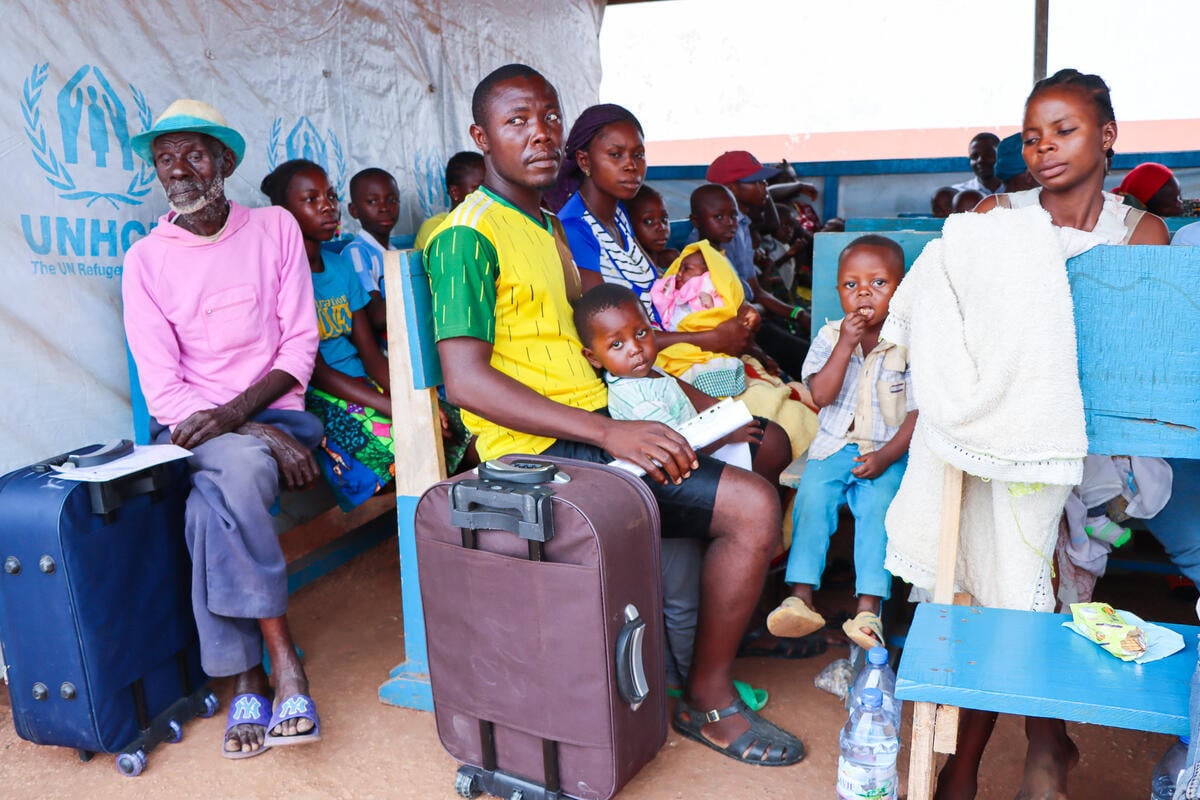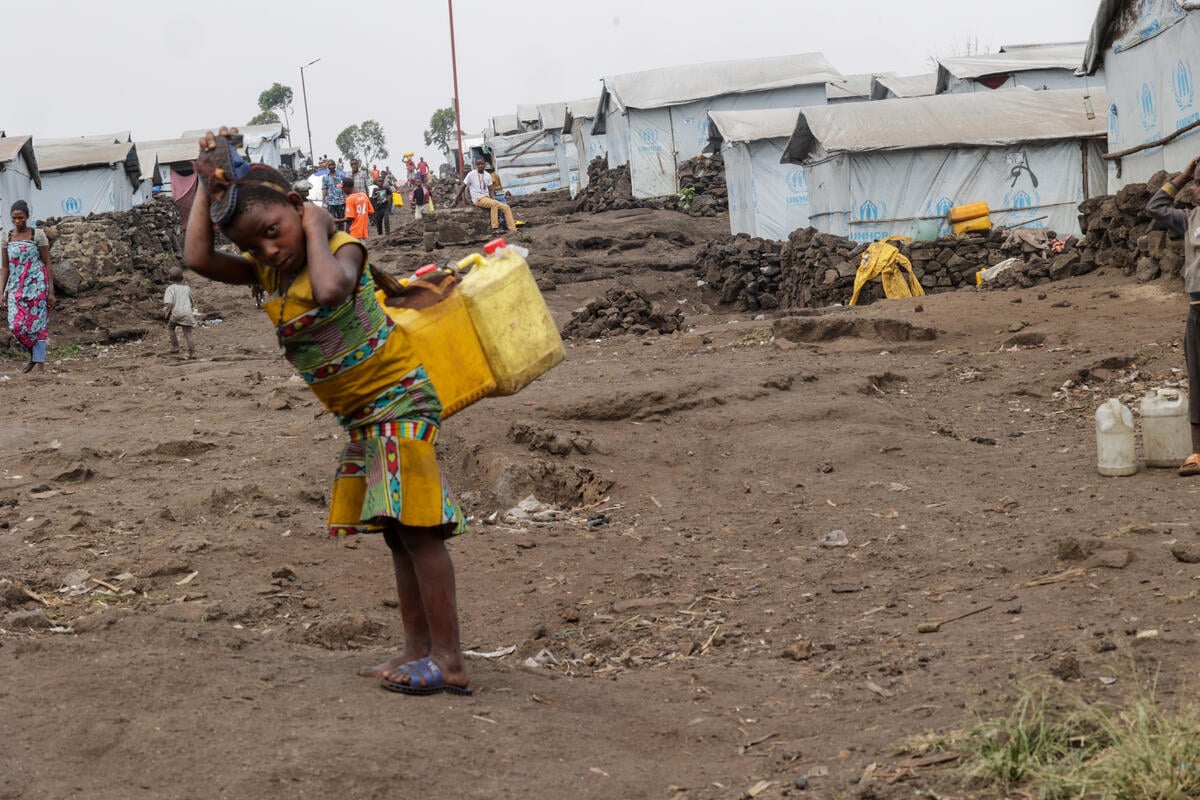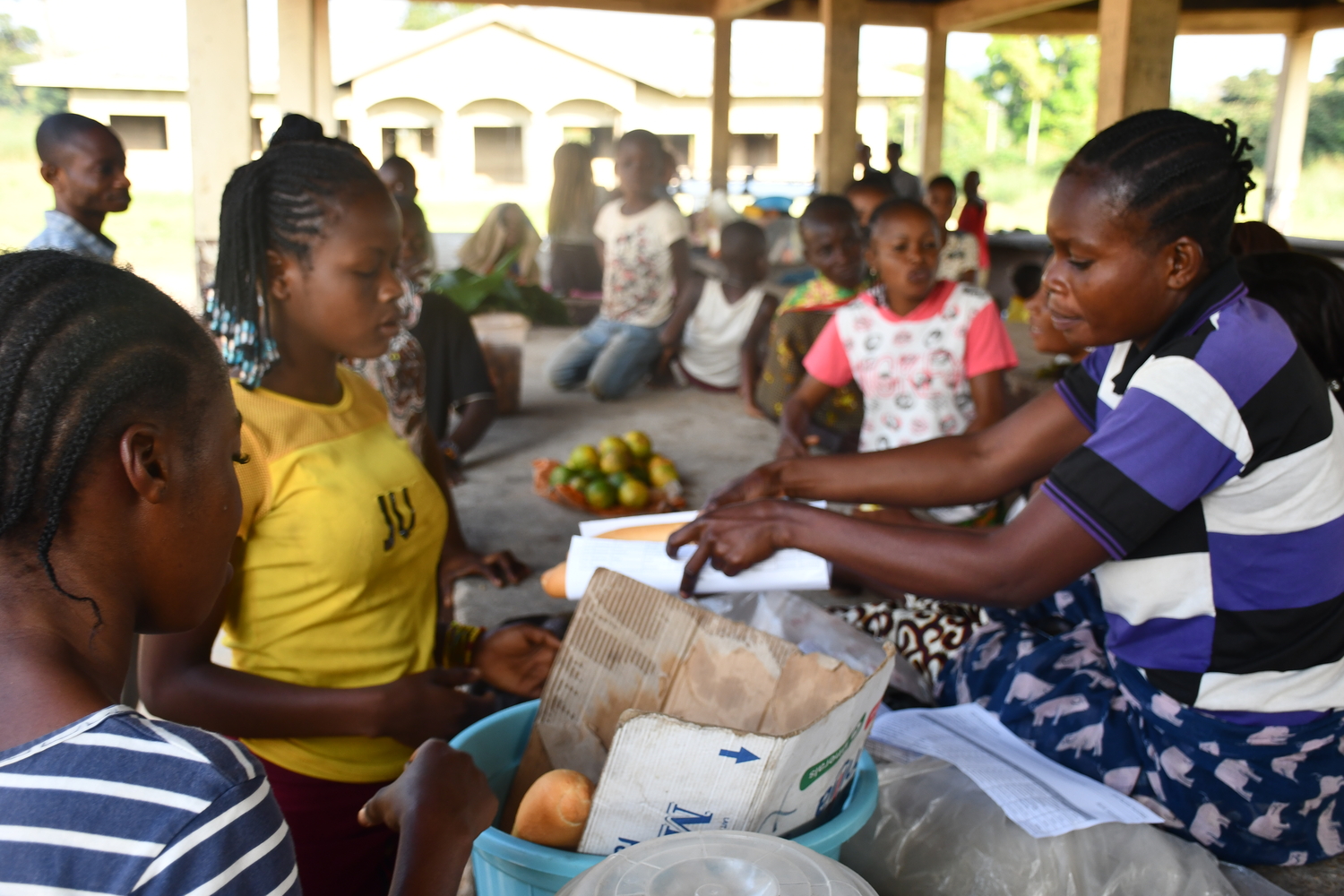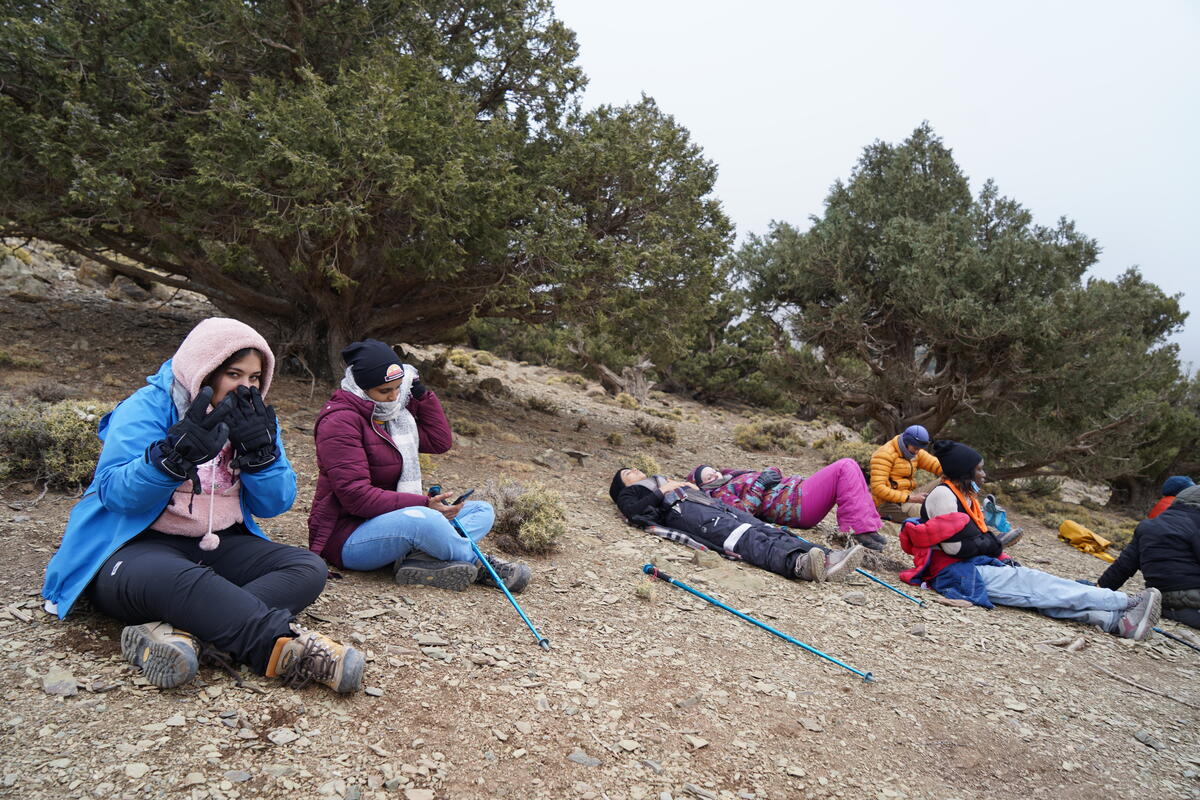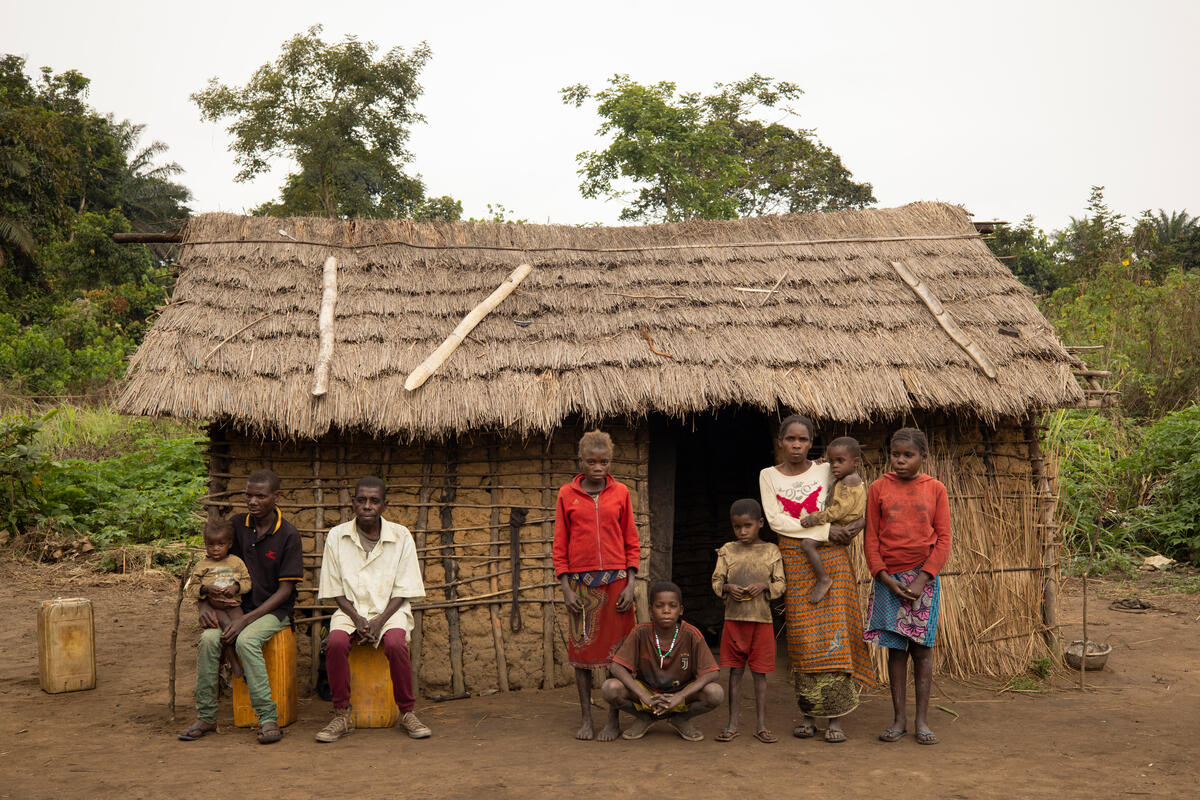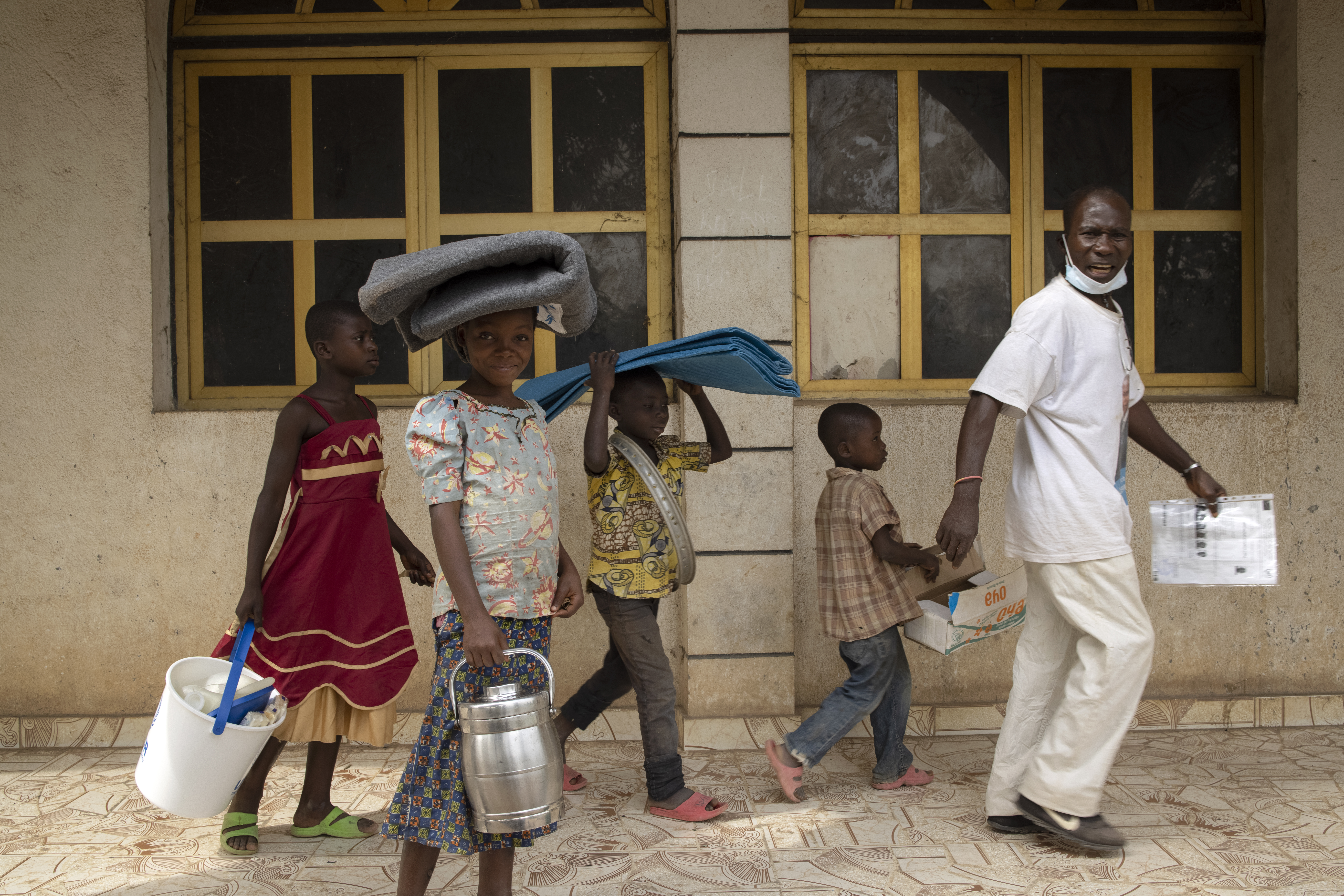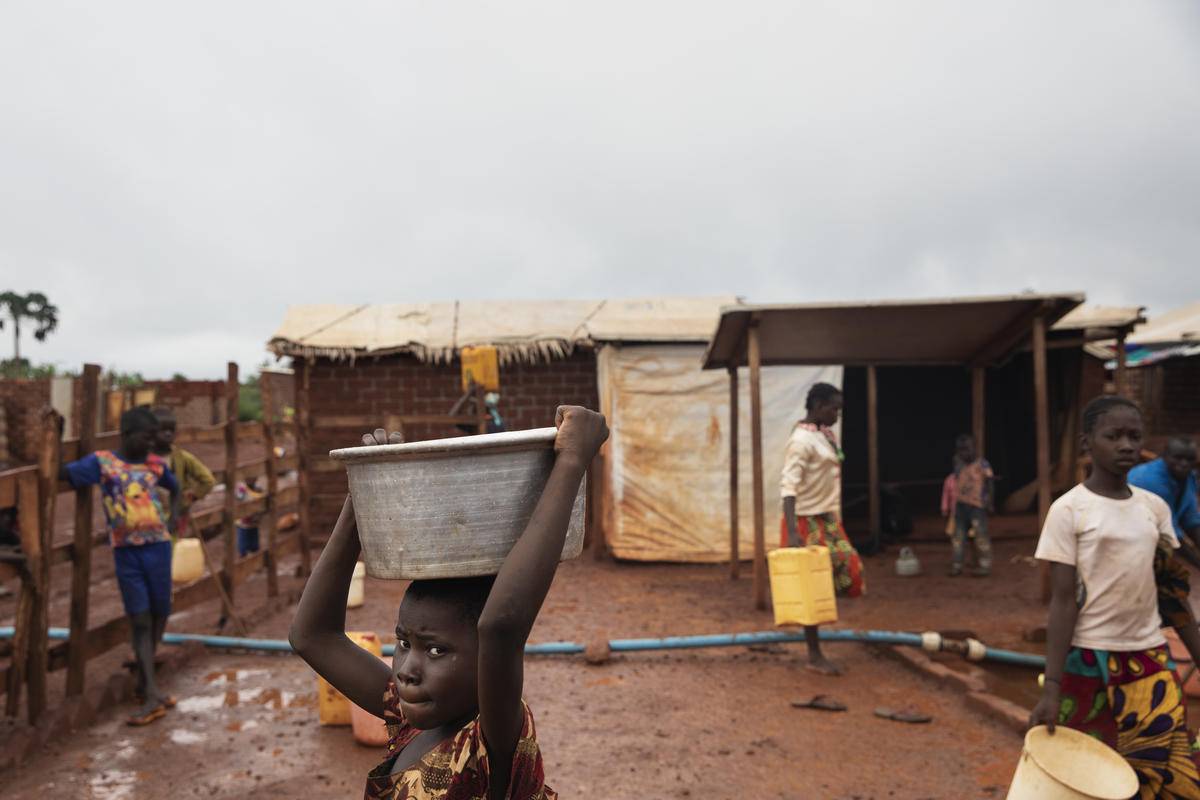Longing to Go Back: Congolese returnee impressed by changes at home
Longing to Go Back: Congolese returnee impressed by changes at home
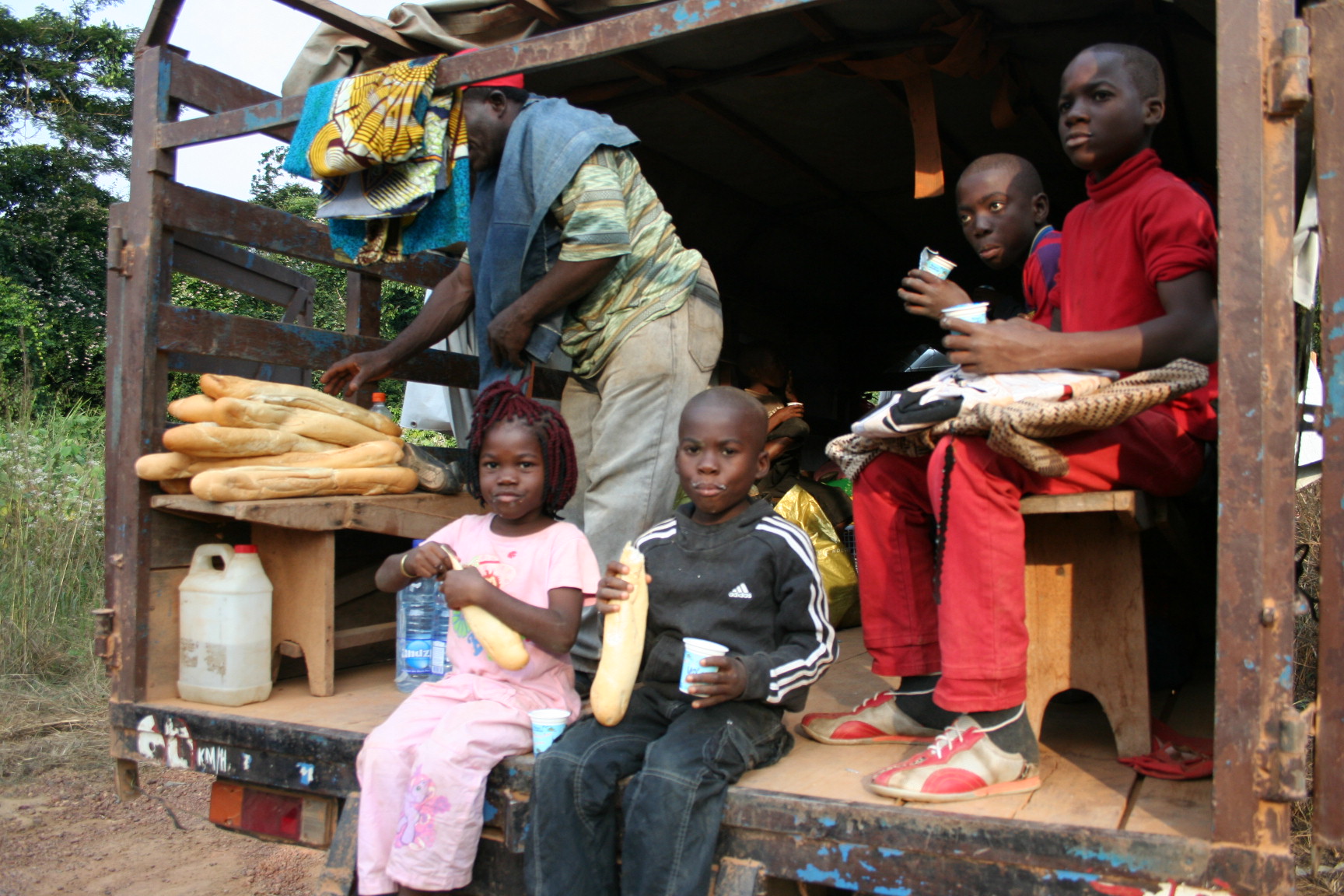
DOLISIE, Republic of Congo, July 28 (UNHCR) - Joseph Pepidi is staggered at the changes in his home town after living in neighbouring Gabon for the past 12 years. He's also delighted and wishes he'd returned from enforced exile earlier.
"I'm late! I should have returned earlier. I really should have returned before," the 43-year-old cried excitedly as the UNHCR truck he was riding on passed a Boeing 737 that had just landed at the airport in Dolisie, which is located in the province of Niari in south-west Republic of the Congo.
"The city grew a lot," he said, pointing to the airport, its parking aprons and runway. "I don't recognize anything. It has evolved, this is good . . . And there is electricity," added the excited father of five, a driver by profession who fled across the border during the 1997-1999 civil war in his country.
Pepidi was among a group of 51 Congolese refugees brought back home last weekend on the first convoy of a stepped-up repatriation programme organized by UNHCR. With Gabon due to announce on July 31 the end of refugee status for exiles from the Republic of Congo, the number of returnees is expected to rise further.
There are currently 9,500 Congolese refugees and asylum-seekers and UNHCR is increasing cash grants and laying on extra convoys to encourage them to return. Many are likely to be as pleasantly surprised as Pepidi was on arrival in Dolisie at the weekend, while others - including three of Pepidi's children - were born in exile and will be going to a homeland they have never seen.
This UNHCR reporter accompanied Pepidi and his family on the gruelling 30-hour road journey from the Haut Ogooué Region of south-east Gabon and shared some of their excitement, impatience and apprehension.
For Pepidi, it was like rediscovering his country and he named each village as the convoy rolled through. He was happy to see that a railway bridge spanning the Niari River was still standing, but upset about widespread deforestation.
After a night spent in the town of Mossendjo, about 100 kilometres inside Republic of Congo, the returnees were on the road again. Pepidi was happy to see some construction along their route. "If there are construction sites, this is good. We will not be unemployed," he reasoned.
When the convoy finally arrived in Dolisie, the third largest city in the Republic of Congo, the refugees were delighted that their long journey back was almost over. "Dolisie, the little Paris," cried 20-year-old Ferdin, who had clearly never visited the French capital.
Ferdin was only eight when his family fled to Gabon. His uncle had come from the city of Pointe-Noire on the Atlantic coast to welcome his relatives, including several children he had never met before.
Many of the returnees will live with relatives to start with, including Pepidi and his family. They will stay with Pepidi's older brother, who lives in Dolisie with his children and grandchildren. They had an emotional reunion here.
After so many years away, many of the returnees were also anxious about what they would find in their former homes and about the future. UNHCR will help the returnees get on their feet by giving them a cash grant worth the equivalent of US$200. Moreover, UNHCR teams have been sent to Dolisie and Mossedjo to monitor and support the returnees and help them reintegrate.
"We welcome the former refugees at the border and we accompany them home, ensuring that everything goes well, that they find shelter and can rebuild their lives surrounded by family and friends," Jean-Philippe Bateza, who heads the UNHCR team in Dolisie, explained.
In the next few weeks, UNHCR plans to run repatriation convoys from the Gabonese capital of Libreville and other cities, including Franceville, Moanda, Muila and Tchibanga. About 100 people have registered for the next convoy, which will set off from Franceville for Dolisie this Saturday.
Over the past decade, around 2,700 people have returned to the Republic of Congo with UNHCR help. The refugee agency and the Gabonese authorities are working together to find solutions for all refugees and asylum-seekers still living in Gabon. Those who opt to stay will receive residency permits - 175 of these have already been granted - but they will no longer be refugees.
By Céline Schmitt in Dolisie, Republic of Congo

